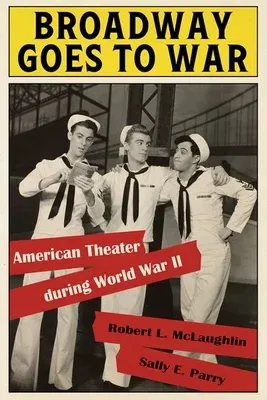Robert L McLaughlin
(Author)Broadway Goes to War: American Theater During World War IIHardcover, 8 June 2021

Qty
1
Turbo
Ships in 2 - 3 days
In Stock
Free Delivery
Cash on Delivery
15 Days
Free Returns
Secure Checkout

Print Length
300 pages
Language
English
Publisher
University Press of Kentucky
Date Published
8 Jun 2021
ISBN-10
0813180945
ISBN-13
9780813180946
Description
Product Details
Authors:
Book Format:
Hardcover
Country of Origin:
US
Date Published:
8 June 2021
Dimensions:
23.11 x
15.75 x
2.79 cm
Genre:
1940's
ISBN-10:
0813180945
ISBN-13:
9780813180946
Language:
English
Location:
Lexington
Pages:
300
Publisher:
Weight:
539.77 gm